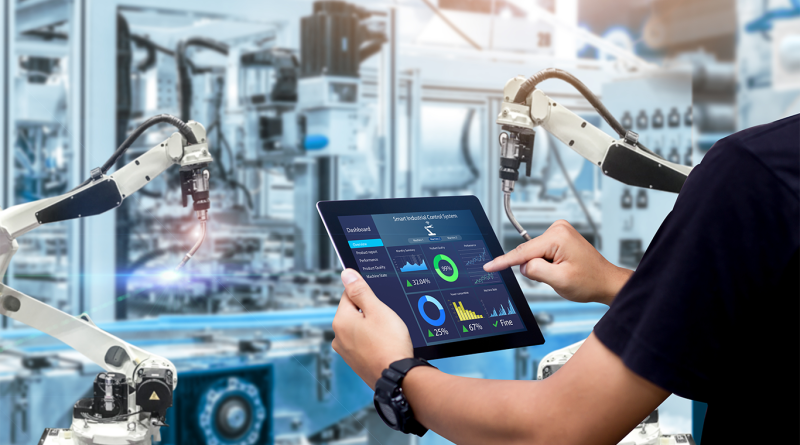9 Benefits of Smart Factories
The advent of smart factories marks a significant transformation in the manufacturing industry. By integrating advanced technologies such as IoT, AI, and machine learning, smart factories are setting new standards for efficiency, quality, and flexibility. These innovations not only streamline operations but also offer substantial cost savings and sustainability benefits. Here’s a detailed look at the key advantages of smart factories and how they are reshaping the future of manufacturing.
1. Increased Efficiency and Productivity
Smart factories utilize IoT devices to monitor and control manufacturing processes in real-time. This connectivity allows for predictive maintenance, reducing unplanned downtime and ensuring machines operate at optimal efficiency. AI algorithms analyze production data to optimize workflows and identify bottlenecks, significantly boosting productivity.
2. Improved Quality Control
Real-time monitoring systems detect defects and inconsistencies during production, allowing for immediate corrective actions. Advanced analytics provide insights into the root causes of quality issues, helping manufacturers to maintain high standards and reduce scrap rates. This results in better product quality and lower costs associated with returns and rework.
3. Flexibility and Customization
Smart factories can quickly adapt to changes in production schedules and customer demands. Automated systems and flexible manufacturing lines enable the efficient production of customized products without extensive retooling. This capability is crucial in meeting the growing market demand for personalized products and smaller batch sizes.
4. Energy Efficiency and Sustainability
Energy management systems in smart factories monitor and optimize energy usage, reducing waste and lowering costs. These systems can predict energy needs and adjust consumption patterns to align with energy availability, contributing to sustainability goals. Implementing energy-efficient technologies also helps manufacturers comply with environmental regulations.
5. Better Supply Chain Management
Smart factories offer end-to-end visibility of the supply chain through integrated digital systems. This transparency enhances demand forecasting, inventory management, and logistics, leading to improved coordination and reduced lead times. Manufacturers can respond more quickly to supply chain disruptions and maintain better overall efficiency.
6. Enhanced Worker Safety and Satisfaction
By automating dangerous and repetitive tasks, smart factories reduce the risk of workplace injuries. Advanced safety systems and real-time monitoring ensure a safer work environment. Additionally, workers are engaged in more strategic roles, leading to higher job satisfaction and productivity.
7. Cost Savings
While the initial investment in smart factory technologies can be high, the long-term cost savings are substantial. Efficient resource use, reduced downtime, lower energy costs, and improved product quality all contribute to significant financial benefits. Over time, these savings can offset the initial costs and provide a competitive advantage.
8. Real-Time Data and Analytics
Smart factories generate vast amounts of data that can be analyzed in real-time to improve decision-making. This data provides insights into production performance, helps identify issues quickly, and supports continuous improvement efforts. Real-time analytics enhance operational efficiency and enable proactive management.
9. Enhanced Competitiveness
Adopting smart factory technologies enables manufacturers to remain competitive in a rapidly evolving market. The improvements in efficiency, quality, and customer satisfaction position companies to respond swiftly to market changes and stay ahead of competitors. Embracing digital transformation is essential for future success in the manufacturing industry.
Smart factories represent a pivotal shift in manufacturing, offering numerous benefits that enhance efficiency, quality, and sustainability. By embracing these technologies, manufacturers can achieve significant cost savings, improve worker safety, and maintain a competitive edge in the market. The future of manufacturing is smart, and those who adopt these innovations will lead the industry forward.
